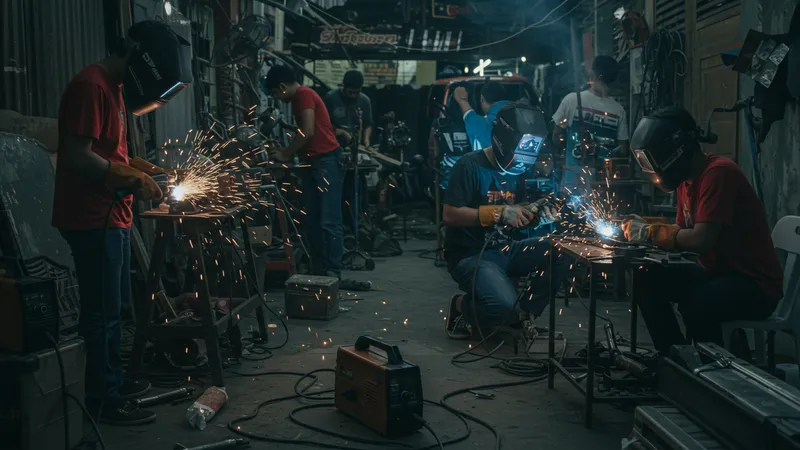
Why Are Indonesians Rushing To Buy Portable Welding Machines
Young Entrepreneurs Redefining Success
Among Indonesia’s youth, a new breed of entrepreneurs is emerging, driven by the allure of portable welding machines. These young visionaries are transforming garages and backyards into buzzing hubs of creativity and business innovation. With affordable entry points, welding machines have become the launchpad for those daring to pursue unconventional career paths. They’re forging careers in fields as diverse as automotive repair, art installations, and customized metalworks. However, it’s not just about the machines; it’s the entrepreneurial spirit that’s catching everyone’s attention. But what makes this youth movement different from others?

The answer lies in their creative approach to market challenges. Unlike older generations, these youth are more tech-savvy, leveraging social media to market their skills and expand their clientele. Platforms like Instagram and Facebook have become essential tools for showcasing their craftsmanship to a global audience. With the internet at their disposal, they are dismantling geographic boundaries, positioning themselves as critical players in a global marketplace. There’s also a strong sense of community, as they form online collectives to share resources, techniques, and international opportunities. But it’s the stories behind their motivation that are truly transformative.
For many, these enterprises represent more than just financial gains; they are a pathway to expressing creativity and showcasing Indonesian heritage. Cultural identity plays a vital role as young entrepreneurs incorporate traditional designs into their modern creations, providing a unique fusion that captivates both local and international buyers. These products tell tales of a rich history, sparking a sense of pride and reinforcing cultural roots. Moreover, some are using their success to further social causes, proving that entrepreneurship can drive positive societal changes. Yet, there’s debate on whether this model of growth has long-term viability.
Even amidst this success, there are challenges these young entrepreneurs must navigate. Issues of scalability, competition, and quality control pose significant hurdles. However, mentoring initiatives are slowly gaining traction, providing guidance and support to these budding business leaders. Institutions are now beginning to recognize the economic potential of this trend, discussing ways to integrate it into broader development strategies. As this movement continues to grow, a crucial question remains: will it inspire future generations to redefine success and reshape Indonesia’s economic landscape? Our next insights may hold the answers.